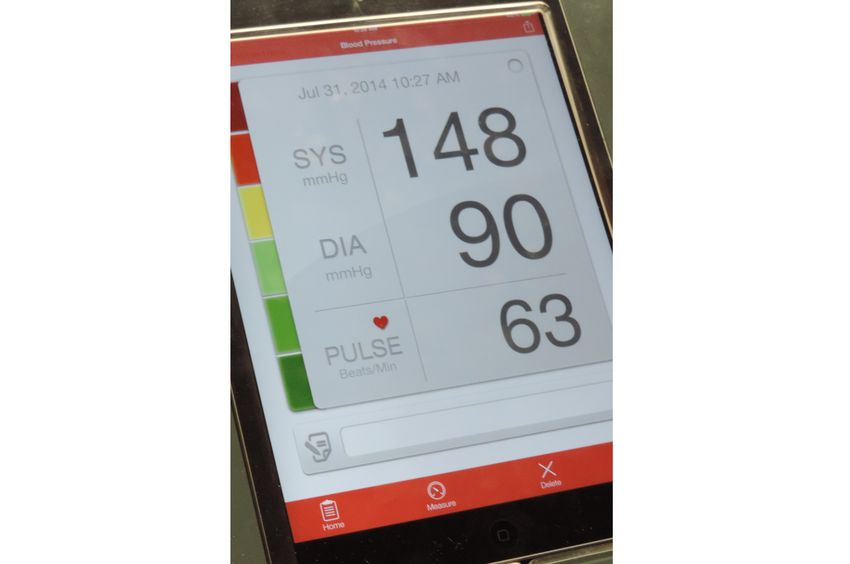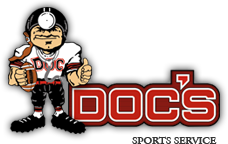New High Blood Pressure Guidelines: Early Detection And Treatment Key To Reducing CVD Risk

Welcome to your ultimate source for breaking news, trending updates, and in-depth stories from around the world. Whether it's politics, technology, entertainment, sports, or lifestyle, we bring you real-time updates that keep you informed and ahead of the curve.
Our team works tirelessly to ensure you never miss a moment. From the latest developments in global events to the most talked-about topics on social media, our news platform is designed to deliver accurate and timely information, all in one place.
Stay in the know and join thousands of readers who trust us for reliable, up-to-date content. Explore our expertly curated articles and dive deeper into the stories that matter to you. Visit Best Website now and be part of the conversation. Don't miss out on the headlines that shape our world!
Table of Contents
New High Blood Pressure Guidelines: Early Detection and Treatment Key to Reducing CVD Risk
High blood pressure (HBP), also known as hypertension, silently affects millions worldwide, significantly increasing the risk of cardiovascular disease (CVD). But new guidelines emphasize the crucial role of early detection and aggressive treatment in combating this often-overlooked health threat. These updated recommendations highlight a shift towards lower thresholds for diagnosis and intervention, promising a more proactive approach to preventing heart attacks, strokes, and other life-threatening complications.
What's Changed in the New Guidelines?
The latest guidelines from leading health organizations (like the American Heart Association and American College of Cardiology) have lowered the threshold for diagnosing high blood pressure. Previously, a reading of 140/90 mmHg was considered hypertensive. The new guidelines define elevated blood pressure as 120-129/80 mmHg, and stage 1 hypertension as 130-139/80-89 mmHg. This subtle shift has significant implications:
- Wider Reach for Prevention: More individuals are now classified as having elevated blood pressure, bringing them into the scope of preventative care much earlier. This means lifestyle modifications and potential medical interventions can begin before irreversible damage occurs.
- Emphasis on Lifestyle Changes: The guidelines strongly emphasize lifestyle modifications as the first line of defense against hypertension. This includes:
- Dietary changes: Adopting a DASH diet (Dietary Approaches to Stop Hypertension) rich in fruits, vegetables, and whole grains, while limiting sodium intake.
- Regular exercise: Aiming for at least 150 minutes of moderate-intensity aerobic activity per week.
- Weight management: Maintaining a healthy weight through a balanced diet and exercise.
- Stress reduction: Practicing relaxation techniques like yoga or meditation.
- Limiting alcohol consumption: Moderating alcohol intake or abstaining altogether.
- Earlier Medication Intervention: For individuals with stage 1 hypertension or those with elevated blood pressure and increased CVD risk factors (such as diabetes or family history), medication may be recommended sooner than before.
Why Early Detection and Treatment are Crucial
The long-term consequences of untreated hypertension are severe. Damage to blood vessels, heart, kidneys, and brain can lead to:
- Heart attack: A blockage of blood flow to the heart.
- Stroke: A blockage of blood flow to the brain.
- Heart failure: The heart's inability to pump enough blood to meet the body's needs.
- Kidney failure: Damage to the kidneys, potentially requiring dialysis.
- Vision loss: Damage to the blood vessels in the eyes.
Taking Control of Your Blood Pressure:
Regular blood pressure checks are paramount. Knowing your numbers is the first step towards prevention and management. Discuss your blood pressure readings with your doctor, who can help you develop a personalized plan based on your individual risk factors and health status. Don't hesitate to seek medical advice if you have concerns about your blood pressure.
Further Resources:
- American Heart Association:
- Centers for Disease Control and Prevention:
Call to Action: Schedule a check-up with your doctor today to get your blood pressure checked and discuss strategies for maintaining cardiovascular health. Early detection and proactive management are key to a longer, healthier life.

Thank you for visiting our website, your trusted source for the latest updates and in-depth coverage on New High Blood Pressure Guidelines: Early Detection And Treatment Key To Reducing CVD Risk. We're committed to keeping you informed with timely and accurate information to meet your curiosity and needs.
If you have any questions, suggestions, or feedback, we'd love to hear from you. Your insights are valuable to us and help us improve to serve you better. Feel free to reach out through our contact page.
Don't forget to bookmark our website and check back regularly for the latest headlines and trending topics. See you next time, and thank you for being part of our growing community!
Featured Posts
-
 Kt Wiz Vs Kiwoom Heroes 2025 Kbo Match Prediction August 17th
Aug 17, 2025
Kt Wiz Vs Kiwoom Heroes 2025 Kbo Match Prediction August 17th
Aug 17, 2025 -
 Porzingis Outshines Doncic Latvia Triumphs Despite Slovenian Stars Strong Start
Aug 17, 2025
Porzingis Outshines Doncic Latvia Triumphs Despite Slovenian Stars Strong Start
Aug 17, 2025 -
 Wayne Rooney Tom Bradys Work Ethic Undeservedly Criticized
Aug 17, 2025
Wayne Rooney Tom Bradys Work Ethic Undeservedly Criticized
Aug 17, 2025 -
 Kershaws Dominance Steers Dodgers Past Padres In Crucial Rivalry Game
Aug 17, 2025
Kershaws Dominance Steers Dodgers Past Padres In Crucial Rivalry Game
Aug 17, 2025 -
 Shop The Mlb Players Weekend Collection Bats Jerseys And Exclusive Gear
Aug 17, 2025
Shop The Mlb Players Weekend Collection Bats Jerseys And Exclusive Gear
Aug 17, 2025
Latest Posts
-
 Adorable Photo Alexandra Daddarios Sons Hercules Like Features
Aug 17, 2025
Adorable Photo Alexandra Daddarios Sons Hercules Like Features
Aug 17, 2025 -
 Jaguars Travis Hunters Status Uncertain After Missing Practice With Injury
Aug 17, 2025
Jaguars Travis Hunters Status Uncertain After Missing Practice With Injury
Aug 17, 2025 -
 Wnba Stars Ranked Nba 2 K26s Top 10 Player Ratings Featuring Caitlin Clark And Angel Reese
Aug 17, 2025
Wnba Stars Ranked Nba 2 K26s Top 10 Player Ratings Featuring Caitlin Clark And Angel Reese
Aug 17, 2025 -
 De Chambeaus Future Pga Tour Announcement On Ryder Cup Participation
Aug 17, 2025
De Chambeaus Future Pga Tour Announcement On Ryder Cup Participation
Aug 17, 2025 -
 Viral Videos Expose Hundreds Of Bikers Reckless Highway Riding In Massachusetts
Aug 17, 2025
Viral Videos Expose Hundreds Of Bikers Reckless Highway Riding In Massachusetts
Aug 17, 2025
